 12 ℃
12 ℃
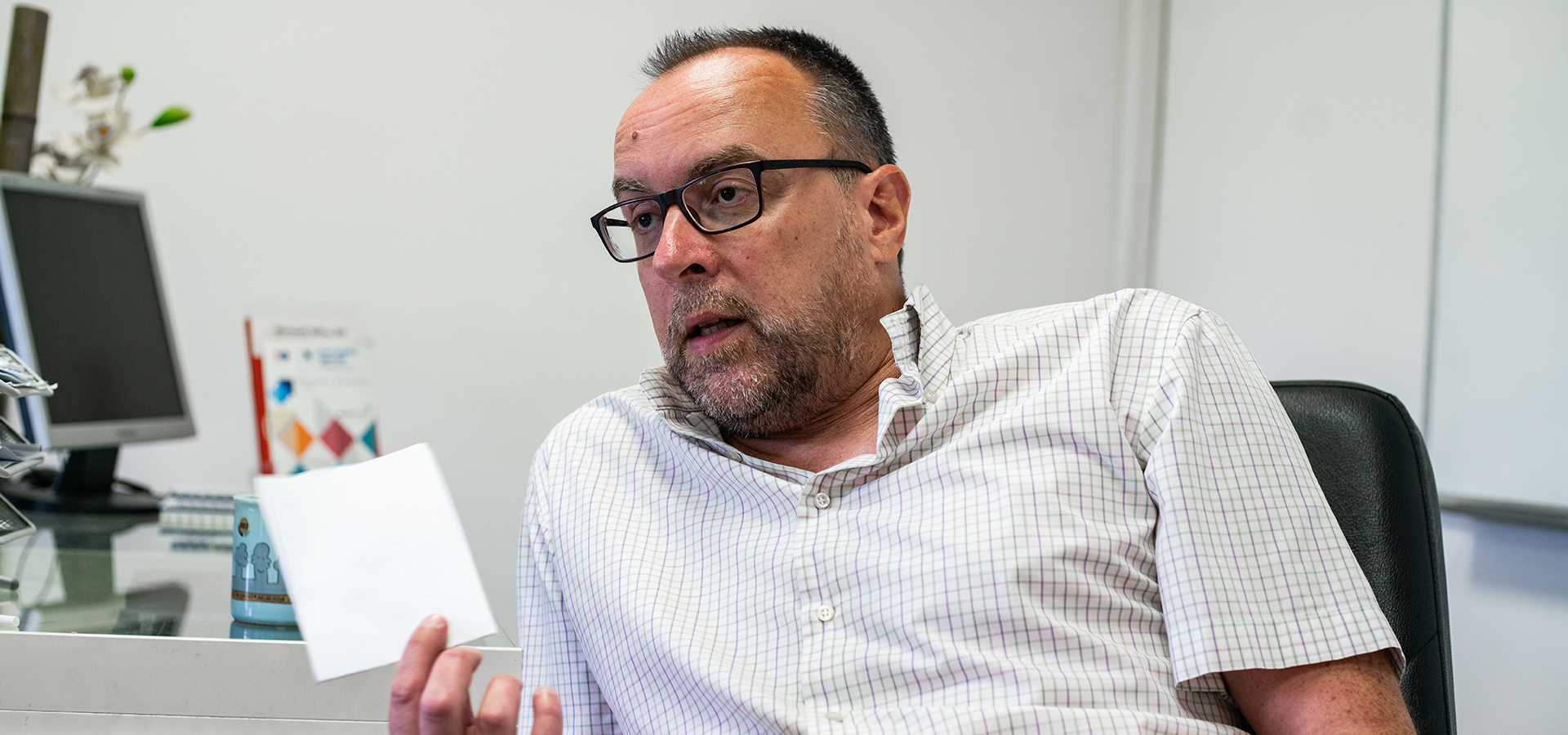
Easyway Allen Car center for quitting smoking has been helping smokers kick this bad habit for the past 12 years. It was founded in 2006 by Milan Hasecic and Milos Rakovic, who themselves are former smokers whose lives were changed by the Allen Carr method. Future non-smokers are guided through the entire process by Milenko Petronijevic, a graduated machine engineer and the only certified Easyway lecturer who helps his applicants leave cigarettes in the past in just one day.
- In 2006, two of my friends - Milan Hasecic and Milos Rakovic - got word of a method called the Allen Carr method. One of the friends was living in London at the time and decided to stop smoking. He went to the Allen Carr center in London and quit immediately after passing the seance. Delighted with his good results, he immediately thought this kind of institution would be a good endeavor in Serbia, seeing how it's a really good and effective story that yields real results - results that he got to experience personally.
They decided to buy into the franchise and so Milan and Milos in 2006 started up their Allen Carr center in Serbia - the only one of its kind in the entire ex-Yu region.
I was invited to teach seeing how I had a lot of teaching experience and on 28th of February 2007 we held our first seminar. We've been working successfully ever since - says Milenko Petronijevic.
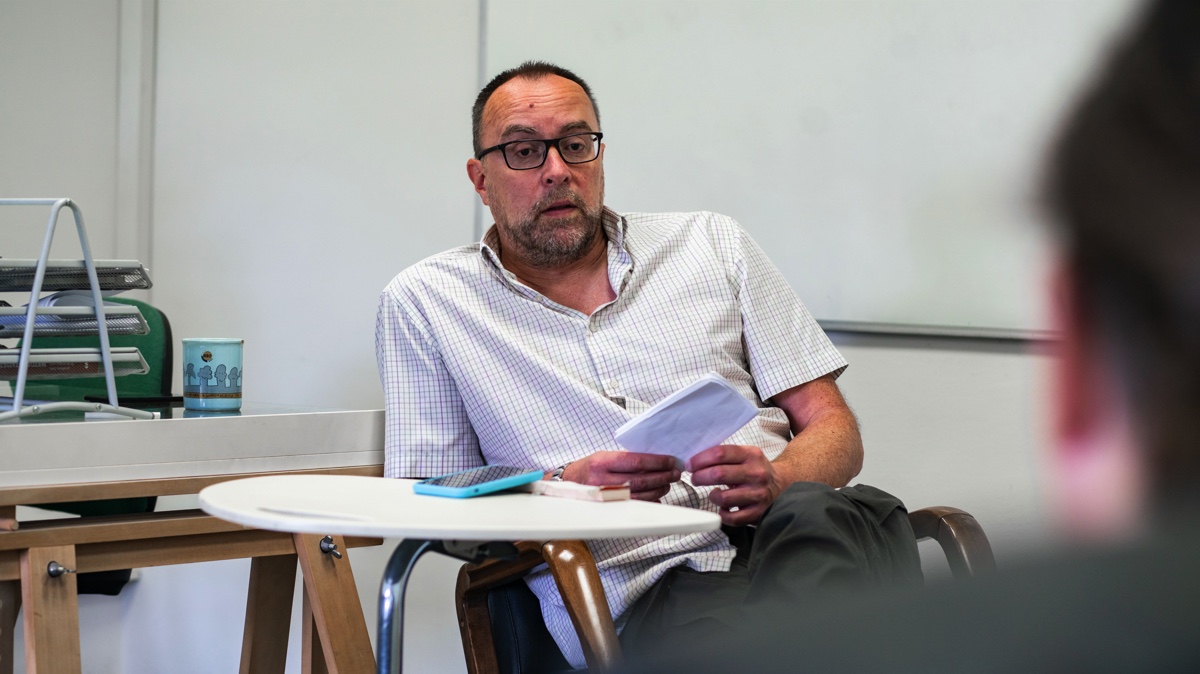
You yourself are a former smoker?
Yes. I quit smoking by reading Allen Carr's book "Easy way to stop smoking" which is a part of this whole story. By the way, we are also the publishers of this book in Serbia. This all happened about a year before the center Easyway began work, so I entered the whole story already well-acquainted with the method itself and its results.
Of course, in order to help others in the best possible way, I did undergo two semesters of training in London. Running a six-hour long seance which is highly interactive is not a simple matter and it does require special training. Today, I am the only lecturer who holds the Allen Carr license in our region.
What sort of people usually come to quit smoking? Are these people who are doing so for health reasons, or those who simply decided 'Enough was enough'.
Luckily, we usually get people who come in before something serious happens. Still, there were those suffering from serious illnesses and came in because quitting smoking had become a matter of life and death.
Still, like I said, most people came in voluntarily for various reasons. Someone is motivated by health, others by finances - cigarettes are relatively expensive for an average paycheck - while others come for the sake of their families. Motivations are different, but it's important to note that people are coming of their own free will.
If we do get people who were 'forced' to come - say, one spouse forced the other to attend and quit the bad habit - I tell them that it will all be over in 5-6 hours and that they should relax and not worry about it. Nobody can force someone to quit smoking. I try to get those people to relax from the start so they don't feel pressured.
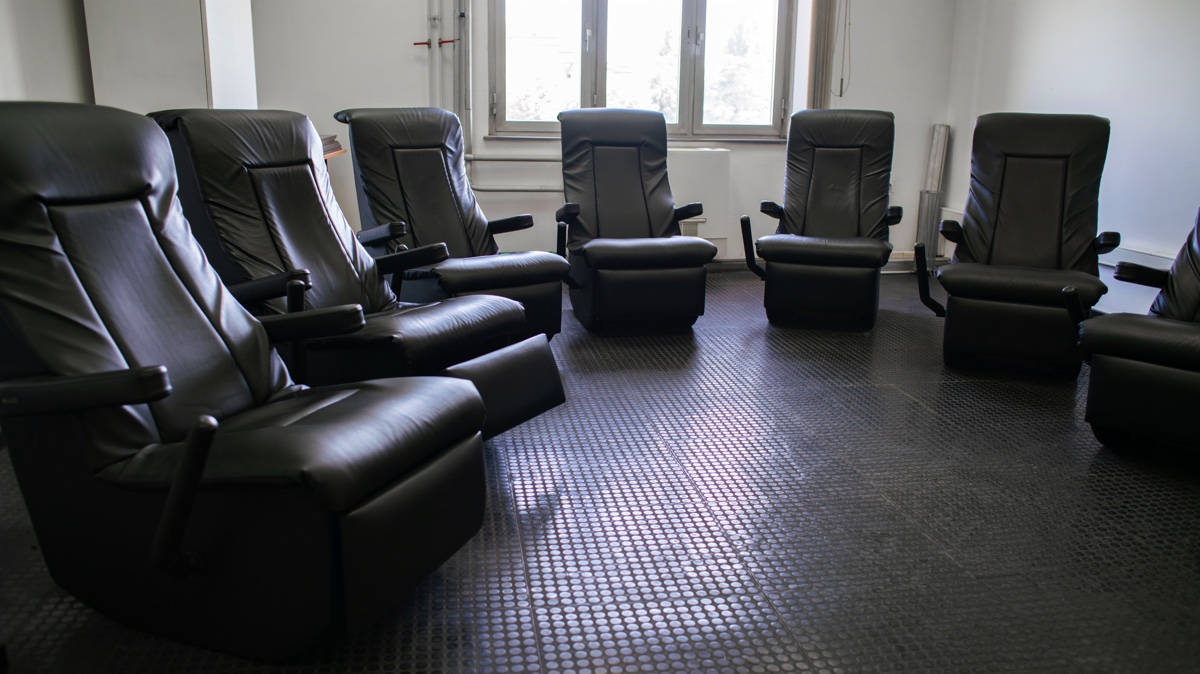
What is the success rate at Easyway center?
We have a money-back guarantee if you pass our program and don't manage to quit smoking. This is a three-month guarantee since the start of the first lecture. So far only about 10% of our applicants have asked for their money back, which indicates that we have an enviable 90% success rate - comparable to the success rate of the mother institute in London.
What are the particularities of the Easyway method that make it so efficient?
There is one aspect in particular that is unique. The other methods that deal with quitting smoking are based on our own willpower. Our method is not based on this. We believe that a person, if they are trying to quit smoking through sheer willpower, will experience problems with overwhelming psychological crises.
More specifically, when we are trying to quit smoking through willpower, we say to ourselves "You must not smoke. I want to smoke, but I must not because of my health, my money, my wife...". The moment you tell yourself 'I mustn't', you admit that you made some kind of sacrifice. You sacrifice your 'friend', the cigarette, in order to gain other benefits and you experience a crisis. This constant self-denial can lead to depression, agitation and stress.
We do our best to use conversation to prevent the possibility of this psychological crisis occurring. Through various examples we shatter every misconception that any smoker has about what the cigarettes really represent for them. After we shatter those misconceptions, at the end of the therapy we end up with a happy non-smoker. A person who didn't deny themselves or 'give up' anything.
The usual advice given to people who are quitting smokers is to not socialize with other smokers for a while, eat spicy food or drink coffee. This way, by restricting yourself even more severely, it's easy for a person to believe that they'll never get to enjoy life again, which is incorrect.
We tell people to live the same way they did before, but without cigarettes. In time, they will realize that all the things they enjoyed before are even more enjoyable when they aren't smoking. Many people who come to the lectures ask 'How am I supposed to enjoy my coffee without a cigarette?'. Six months later, when we see them again, they tell us that they actually enjoy coffee far more now because their taste buds aren't blocked up by cigarettes.
Therefore, it is precisely through this kind of misconception shattering that we help people quit smoking and not feel denied or restricted in any way.
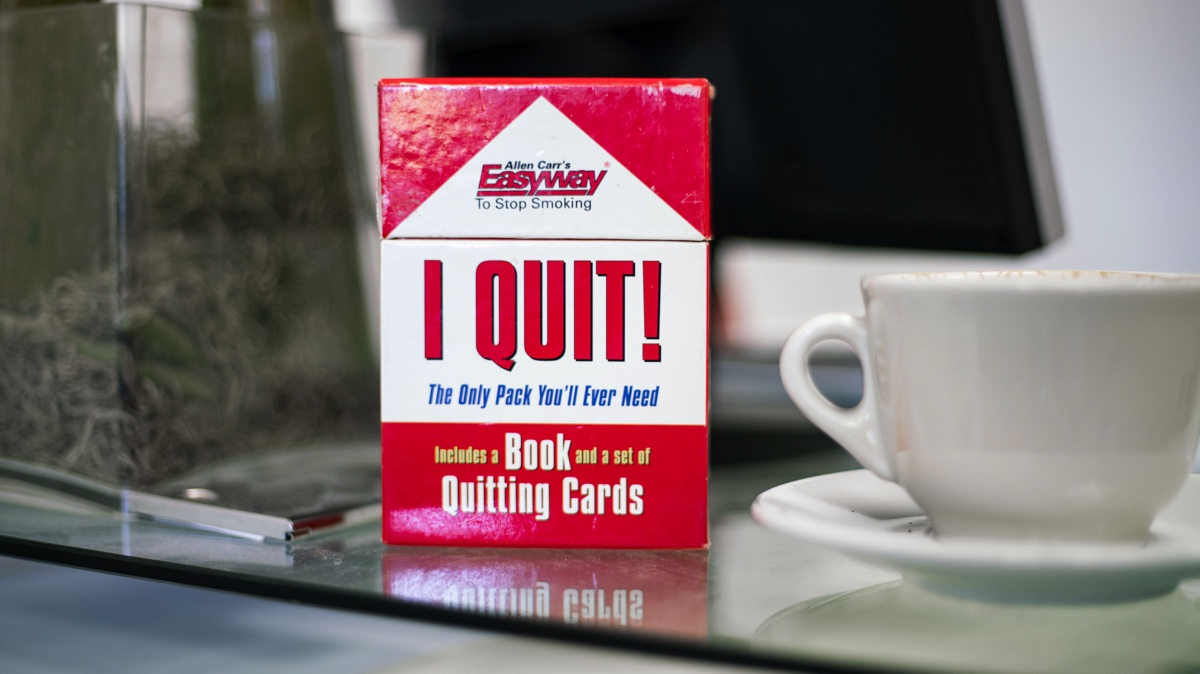
Can you describe one of your seances?
People - usually in groups of eight - sit in comfortable chairs where they can recline and relax. I do all the toking for about three-quarters of the time, while the rest is interactive.
Every 45 minutes, we have a smoking break. After the final, fifth break, when they smoke their final cigarette, people say goodbye to smoking, leave their cigarette packs here and in a way make that final cigarette a small quitting ritual.
In 12 years that we've been in business, we haven't had a single case of someone being negative or complaining - people are very relaxed.
You mentioned that there is still that 10% of people who fail to quit smoking after the treatment. Is there a reason for this?
Usually these are people who feel forced to quit smoking and are unable to fully relax. Another reason could be that they weren't paying attention to the lecture and were disconnected from the entire process. Maybe they had a bad night's sleep previously or some other problems on their mind, taking their attention away.
This is why we have additional seances that last around 2.5 hours where we try to help people. At the Allen Carr center in Serbia, we offer free additional therapies forever to anyone who came to our seance once.
The program itself consists of one large therapy session that lasts six hours and two shorter ones in case anyone is experiencing difficulties. These therapies should be enough.
Still, it can happen that someone takes up smoking again after a year or so. These people can come to additional free therapies for support in quitting cigarettes again.
Therapy is a process with its own cognitive-behavioral characteristics. In this process, the smoker shatters misconceptions and draws their own conclusions. We give them the know-how and awareness on what all happened to them during all the years they've been smoking. Eventually people reach the conlcusion by themselves that cigarettes are no longer something they need.
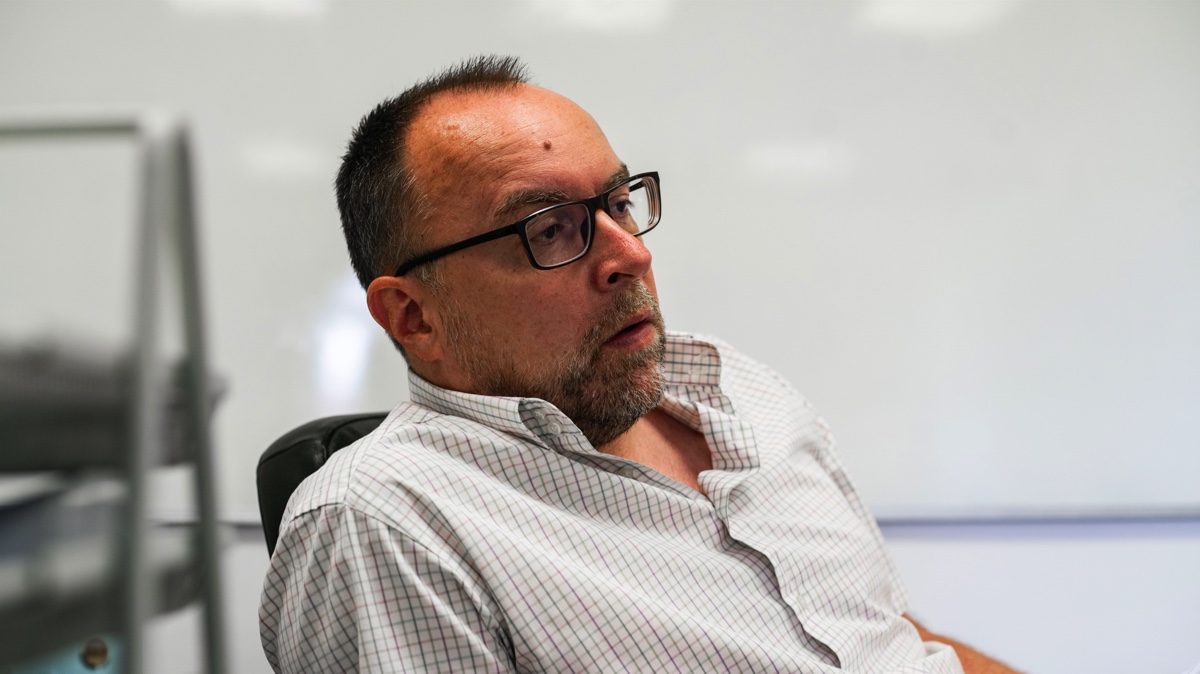
In addition to individuals who come to you for help, you also work with companies. How does that work?
We cooperate with NIS in Novi Sad to help their employees quit smoking. We also cooperated with Ball Packaging, Delta Holding, Henkel, Erste bank and other companies.
Companies have several interests in non-smoking employees. Primarily, removing any fire hazard - 75% of all fires in companies are caused by cigarettes. Secondly reduced tension between smokers and non-smokers. Then we have an increased worker loyalty towards a company that invested funds into their wellbeing. Not to mention the increase in productivity in workers who no longer interrupt their work with smoking breaks.
These are some of the main reasons why our center for quitting smoking is interesting to various companies and businesses.
You have clients coming from former Yugoslav countries. Any difference in working with them?
The good thing is we all speak the same language. Language is the most important part of this therapy. It defines all cultural understanding and examples. The habits are universal in all former Yugoslav countries, it's just the regulations that are a bit different. For example, in Macedonia the law that protects the citizens from cigarette smoke exposure is drastically more severe. In clubs in Skoplje there is no smoking allowed, unlike the clubs in our country or Bosnia and Herzegovina.
Still, we all share the same mentality so the therapy still succeeds.
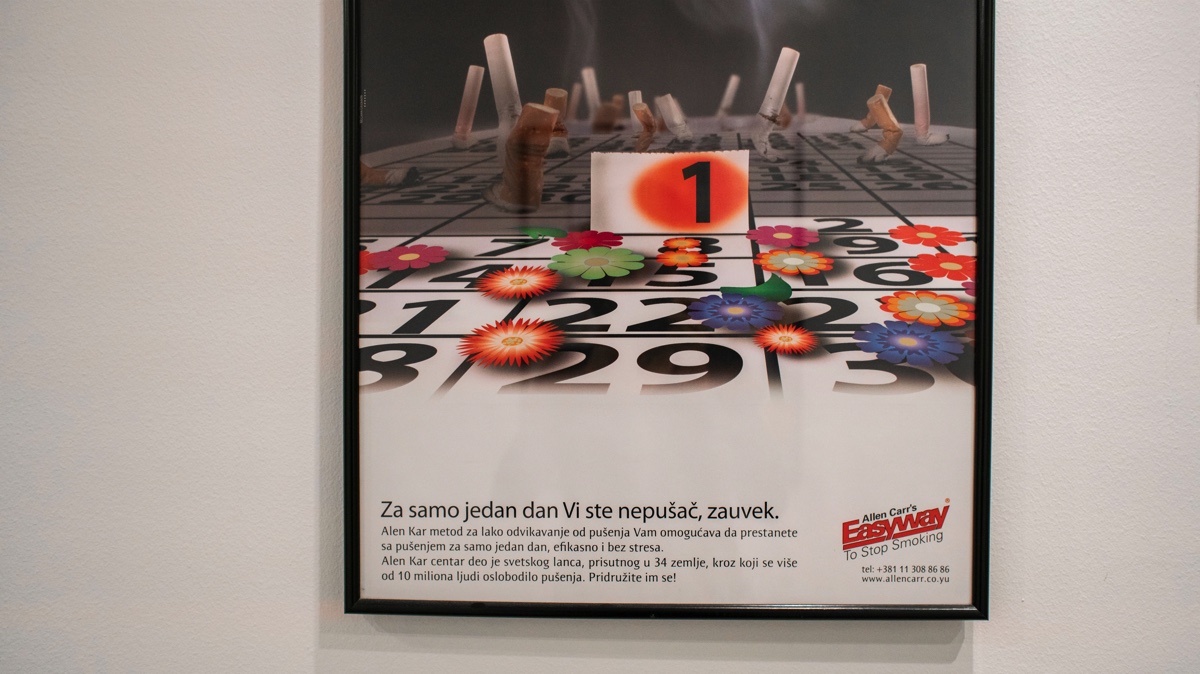
What are the most common misconceptions and prejudice among future non-smokers?
One is that they'll gain weight. You can't gain weight from a lack of nicotine - you gain weight from over-indulging in food. When you quit smoking through willpower, you seek a replacement for it - 'Oh, I need a smoke, so let me distract myself by something else' and that's when people usually go to the refrigerator and start putting on weight. With our method there is no self-denial and therefore no weight gain.
The second misconception is that they won't enjoy food and drink as much anymore. Of course, that's also false. In fact, without cigarettes, they'll enjoy those things more.
There's also the belief that they'll have to undergo some kind of abstinence crisis hell. The physical crisis may last for a few days and it manifests only as a vague feeling of emptiness and the need to do something with your hands, but nothing more. It's the psychological crisis that's the problem and we work on making sure it doesn't happen because - as stated before - we aren't relying on our willpower or interpreting this as any kind of sacrifice.
Lastly, another common misconception in smokers is that they'll leave cigarettes, but 'not right now' - they'll do it after their vacation or after they resolve some issue in their life. That's when they keep postponing it for one reason or another and that can take a lifetime. This is why our method acts fast and lets people quit smoking for just one day without the need to procrastinate and prolong the inevitable.
You are also a former smoker yourself. How important is that fact for you as a lecturer?
You can't really do this type of work without being a former smoker yourself. You have to have gone through the whole process and felt every part of it personally. Me being a former smoker also helps people trust me and realize we are at the same side.
This is something I state in my lecture introductions, but people often come up to me before the lecture even begins to ask if I ever smoked. This is something that helps them relax because they know they are listening to someone who understands their struggles.
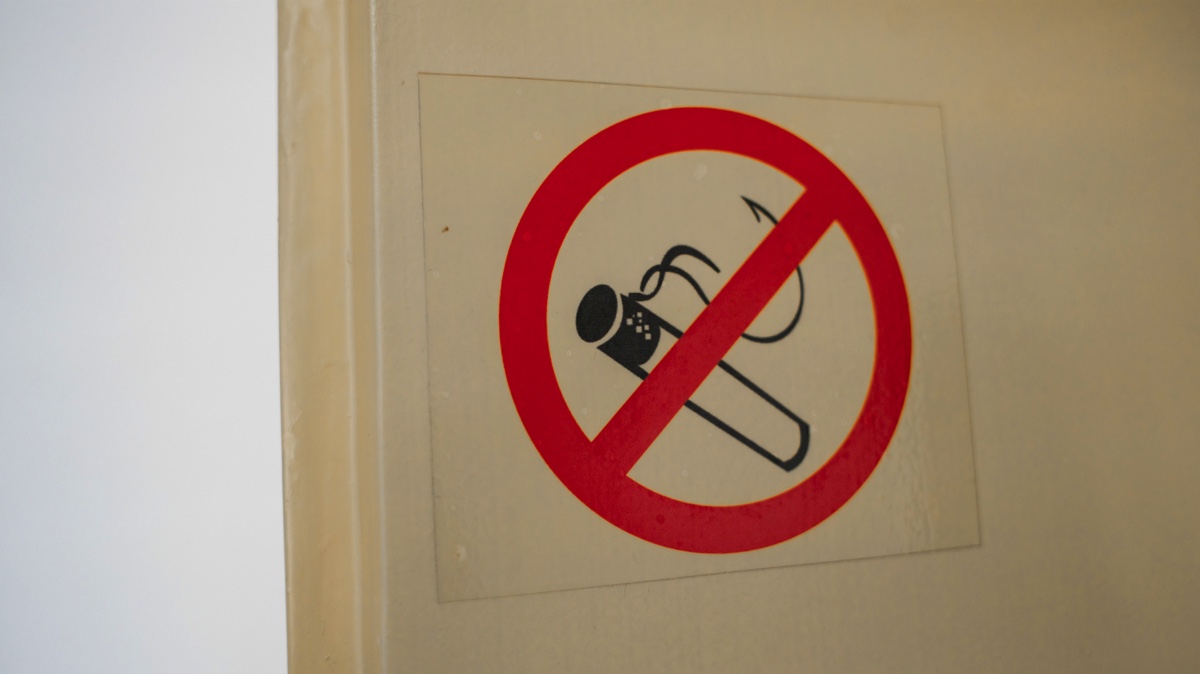
What are some of the most commonly asked questions during the session itself?
Mostly people wonder how long the abstinence crisis will last and what they should do in stressful situations. It happens that they feel great about it during the lecture itself, but afterward they feel like they're entering unknown territory and they're afraid of what's coming.
It also usually happens that someone in the group has seen some incredible medical expert - who naturally doesn't actually exist - who told them it's not healthy to quit smoking abruptly because that's bad for the organism. Seeing how we often see doctors seeking to quit smoking in our lectures, they always laugh their hearts out when they hear about this. Usually their answer is 'So you've been poisoning yourself for 40 years and now you're going to stop - how can that be a shock for your organism?'
We answer all these queries through examples and clarification so people rarely leave our sessions feeling intimidated.
So far, several thousand people have passed through the Allen Carr center in Belgrade. Has there been a certain community that formed here? Do you see the former smokers now and then?
We do have a 'beers with Milenko Thursdays' tradition in a cafe that's run by a fellow former-smoker. They're really fun little gatherings.
Take a look at the experiences of some of the participants